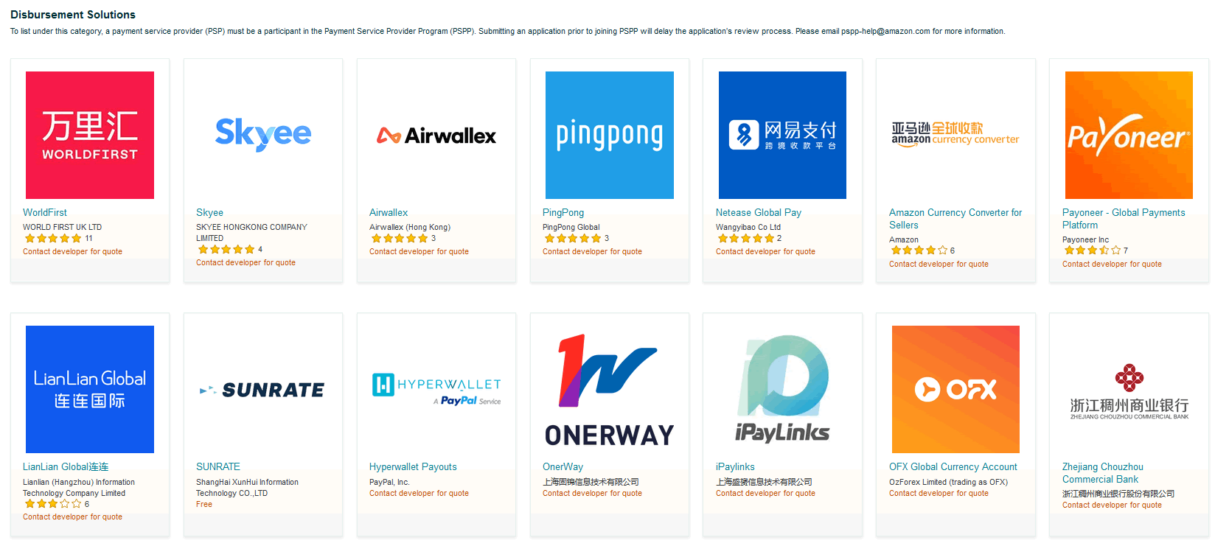The Web Retailer News Digest for July 9th, 2021
In what will be good news to many beleaguered US and UK sellers, Amazon has cracked down on hundreds of major Chinese sellers for apparently faking or manipulating product reviews. According to Marketplace Pulse, well-known consumer electronics brands including Mpow and Aukey were among the accounts suspended.
The suspensions affected almost 300 sellers based in China and dozens of top-selling products – representing $1 billion-plus in annual sales. Online review practices are a hot topic. Just last week, the UK’s Competition and Markets Authority began investigating Amazon and Google for not doing enough to combat fake or manipulated product reviews.
Review integrity is essential to how the Amazon marketplace operates. For sellers, they affect search ranking and conversion rates. For shoppers, genuine reviews allow them to have trust in Amazon, so they know that what they are purchasing is a good quality product that matches their needs. A broken review system undermines trust and favors sellers who are willing to use black-hat tactics.
Amazon’s aggressive recruitment of Chinese manufacturers came to light in January, and dubious review practices have been an open secret among sellers for years. The question is: how did it get this far before something was done?
Amazon finally takes decisive action
To get some perspective on what it took for Amazon to finally bring the hammer down, let’s roll back the clock a few years.
A 2015 email from a former Amazon executive (unearthed as part of a US government investigation) bragged about the marketplace being the best place for Chinese manufacturers to sell globally, and that Amazon had over 100 staff members dedicated to this growth venture. And indeed, Chinese sellers flooded the marketplace. By January 2021, the number of new Amazon sellers nearly doubled from 2020 to 2021, rising from 47% to 75% of all new sellers.
This wasn’t coincidence or pandemic-induced – it was by Amazon’s own design. While it wasn’t illegal or unscrupulous for Amazon to be recruiting more international sellers, it did acknowledge the effect on the marketplace in the aforementioned email: “the risky downside to this is that US and EU based sellers do not find this avalanche of China-based sellers very amusing”.
At the same time, Chinese manufacturers are notorious among the Amazon seller community for gaming the marketplace system in various ways, including fake reviews. This became exposed dramatically in May 2021, when a data leak from a server in China exposed over 13 million messages involving Amazon sellers offering to pay customers for favorable reviews.
This revelation implicated over 200,000 individuals, and – it seems – led to the beginning of Amazon suspending a number of large Chinese sellers. While the reasons for these suspensions weren’t publicly disclosed, it’s not a large leap to understand what is happening and why. Now, with the UK’s CMA putting further pressure on Amazon to prevent sellers from manipulating product reviews, we are seeing public evidence of long-overdue enforcement.
But why wait until now? With Amazon both simultaneously courting and shutting down large China-based manufacturers on the marketplace, the old adage of “you can’t have your cake and eat it too” comes to mind. While bringing bad actors to justice is the right thing to do, and helps level the playing field for many domestic sellers, it certainly seems that Amazon could have handled the situation better.
Amazon likes to brag about its powerful automation that in 2020, “stopped more than 200 million suspected fake reviews before they were ever seen by a customer.” One would think that between its vast resources, powerful bots, and informed seller community (who have no doubt red-flagged many review manipulators in the past) that Amazon should have done a much better job catching and dealing with this behavior a long time ago.
Read more at Marketplace Pulse.
Sourcing products from India – new website
With everything going on between Amazon and Chinese manufacturers, perhaps you’re looking for a new sourcing option. Have you considered India?
Many ecommerce sellers are increasingly turning to India for sourcing high-quality, premium products made with natural materials. A newly launched platform, the India Sourcing Network, aims to help global sellers and brands build profitable private label businesses with products sourced from India.
Founded by sourcing experts and ecommerce sellers who understand the struggles faced by entrepreneurs as they import products from Asia, the platform offers an end-to-end solution for sourcing private label products from India.
Key resources for sellers include workshops, live webinars, in-person events, sourcing guides, access to vetted manufacturers and service providers, and a supportive community of sellers.
Find out more at India Sourcing Network.
Amazon news
PSP program pares down “collection account” providers
For international sellers with products sold across multiple Amazon marketplaces, one big question has always been: how do I get foreign currency proceeds back home with the least amount lost to exchange fees? Amazon’s own currency converter does not offer the most competitive rates, and it earns Amazon even more money from its usage.
Over the years, international sellers have often turned to any one of many collection account services, which offer significantly better exchange rates. Following a number of scams targeting Amazon sellers, these third-party providers are now regulated under Amazon’s approved Payment Service Provider (PSP) program. Now a major deadline is drawing near, as from July 15, 2021, Amazon will stop disbursements to sellers using service providers who are not banks and not part of the official PSP scheme.
For sellers, the time is now to make sure that any PSP you are using to potentially save 2-3% per currency transfer is on the updated, approved PSP list – or you’re not going to get paid.

It’s interesting to note how pared down this list is compared to the many service providers who used to be in this space. As of writing, there are only thirteen approved PSP providers. Of these, the majority are Chinese-owned companies and primarily target China-based sellers.
The only non-Chinese third-party services for both UK and US sellers are currently Payoneer and OFX. World First is available for UK sellers (as well as several other countries), but not in the US because they are owned by Ant Financial, the financial arm of Chinese tech giant Alibaba that has so far been blocked from operating in the US. Notable foreign exchange companies that are missing include Wise and Currencies Direct, although these providers continue to market their services to Amazon sellers on their websites.
Is Amazon purposely trying to shunt currency exchange traffic to its own system? Or is it all part of a good-faith effort to “to protect you and customers from fraud and abuse,” as they claim?
Knowing Amazon, it might be a bit of both – but given the current situation with suspensions of major Chinese manufacturers, it sure is thought-provoking to see so much cross-border ecommerce attention focused on that market.
Read more at Amazon Seller Forums.
Stats revealed on Amazon UK marketplace
What’s happening with small and medium-sized enterprises (SMEs) selling on Amazon in the UK? We’re glad you asked. Amazon has released its 2021 UK SME Community Report with all the details on exactly that. While it does contain a fair share of self-congratulatory pats on the back to Amazon for its work with UK sellers, there are a few interesting statistics to note:
- Over 65,000 UK SMEs currently sell on Amazon. About 65% of them sold their products to customers around the world.
- Of those 65,000, 14,000 SMEs exceeded £100,000 in sales – and 1000 UK SMEs achieved sales of £1 million or more for the first time in 2020.
- In a surge that was surely related to everyone shopping from home during the pandemic, UK SMEs selling on Amazon moved over 750 million products. This was an increase of 200 million compared to the previous year. If you want to really get granular, the total number works out as around 1500 products per minute!
- Yearly sales for UK SMEs increased on average to more than £300,000, up from £200,000. When 65,000 sellers are factored in, UK SMEs sold £19.5 billion on Amazon in 2020.
- Export sales were over £3.5 billion, a significant increase from the previous year’s £2.75 billion.
All in all, an interesting look under the hood at some rarely seen Amazon UK marketplace metrics – and a banner year for Amazon and its UK SME seller partners.
Read more at Amazon Day One Blog.
Other online marketplace news
Cross-border shoppers could be charged EU VAT twice
You’re no doubt familiar with the old aphorism, “Measure twice, cut once”. For some UK and EU marketplace sellers, that soon may become, “Ship once, pay VAT twice”. Why? Chalk it up to tax-related confusion.
First, some background: New EU VAT rules implemented as of July 1st declare that VAT has to be collected by the marketplaces on cross-border sales, rather than leaving it to the sellers themselves – primarily because lots of foreign sellers, particularly those outside the EU, have been avoiding it. The UK brought in equivalent rules back on January 1st.
So, about that confusion. Both Amazon and Etsy have advised sellers in the UK not to use Post Offices to send parcels, because they have not been transmitting the required information electronically. Doing this identifies the parcel when it passes through customs and shows that VAT will be paid by the marketplace. A package sent without the correct data could result in the buyer being charged VAT twice. Although the UK Post Office has been called out specifically, this new VAT scheme affects sellers everywhere outside the EU, not just the UK.
The upshot: ensure that your Amazon business is fully compliant with the new VAT rules if you plan on doing any sales in the EU or UK. Also, be sure any packages you send carry the proper codes, electronically as well as on the parcel itself, or you will end up with very unsatisfied customers.
On the good side of tax-related news, Amazon is again running an offer for cheaper VAT registration which may be helpful to your business. Amazon’s VAT Services is a compliance solution that helps you manage your VAT obligations across seven European countries. The offer provides six months of return filing and fiscal representation free in all the countries you have subscribed in.
Amazon has a vested interest in making sure all its sellers are tax compliant, so this seems like a pretty good deal as well as a viable solution to the often overwhelming tax-related confusion felt by international sellers everywhere.
Read more about Post Office issues on Amazon and Etsy, and about the Amazon VAT Services offer.
Webinars in the week ahead
For everyone
Various dates: Amazon small business Pathways series (Amazon).
Various dates: Amazon advertising’s global webinar program rolls on with 20+ webinars scheduled, covering Sponsored Products, Sponsored Brands, reporting, optimization and tips (Amazon).
And finally…
Bezos to be shot into orbit

You started a website to sell books. You turned it into the largest ecommerce platform in the world.
You became the world’s richest man and changed your style from mild-mannered accountant to tech bro Lex Luthor.
You survived the world’s most expensive divorce. Then, you decided to step down as CEO of your $1.7 trillion dollar business. So, what’s next for Jeff Bezos?
How about launching yourself into space?
Yes, in a move that (a) is dripping with irony and (b) should surprise no one at this point, Jeff Bezos is going full Starman when he rides into orbit on July 20, 2021, as part of the inaugural launch of Blue Origin’s first crewed flight aboard the New Shepard.
Blue Origin, of course, is the aerospace manufacturer and spaceflight services company founded by Bezos in 2000 so he could join the “Billionaires’ Race to Space” along with Elon Musk’s SpaceX, Richard Branson’s Virgin Galactic, and Donald Trump’s Space Force (okay, that last one is a bit of a stretch).
For Amazon sellers frustrated with poor treatment over the years, this represents a great opportunity to pray for some “lost in space, forever” schadenfreude.
Consider the years of underlying anger and frustration felt by sellers when:
- They were suspended and unable to get a fair hearing from Amazon – or any support from Seller Support.
- They were victimized by old rules enforced mechanically and algorithmically.
- They were victimized by new rules that pushed them to work harder, perform faster, and offer refunds more easily.
- They were jammed up by bizarre regulations like those on pesticide labeling – and a malfunctioning bot caused them to have to attend training and complete additional fields.
- Their business was negatively impacted by any one of Amazon’s “death by a thousand cuts” strategies.
Is it any wonder that a Change.org petition titled “Do not allow Jeff Bezos to return to Earth” currently has over 150,000 signatures?
The movie poster tagline for the 1979 movie Alien says, “In space no one can hear you scream.” Ground control to Major Jeff: Amazon sellers have been screaming on Earth for years, and no one has heard them here, either. It’s no doubt the hope of many sellers that Mr. Bezos is off to his final frontier, or perhaps just a permanent vacation to a galaxy far, far away.
Then again, he may just be scouting the new location for www.amazon.mars.
Read more at Popular Mechanics.

Leave a Reply